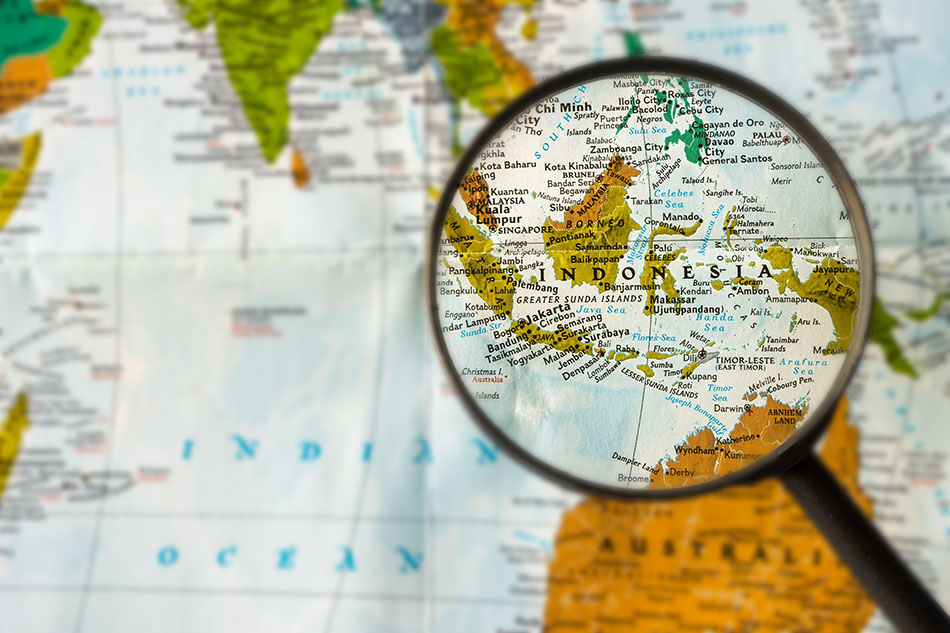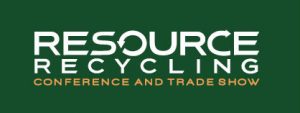
Indonesia has become the fourth largest importer of U.S. recovered paper. | Naruedom Yaempongsa/Shutterstock
A top importer of U.S. recovered paper continues to develop new quality criteria for inbound shipments, despite previous signs the country had settled on specific contamination thresholds.
The Indonesian government in March announced a plan to revise its scrap paper import guidelines. An initial proposal, to allow only loads with 0.5% or less contamination, met pushback from paper industry stakeholders, and the government postponed that decision.
Last month, communications from the country’s government indicated officials were revising the import standards to be in line with scrap material specifications provided by the Institute of Scrap Recycling Industries (ISRI). These would bring the contamination limits to 1-2% for certain materials and 3-4% for others, depending on the type of contaminant.
However, subsequent communications indicate the issue is not yet settled, and that there are varying opinions among Indonesian government entities as to which standards should be used. Meanwhile, environmental groups in Indonesia are calling for the stricter limit.
Differing opinions
During a trip to Indonesia this month, representatives from ISRI and Paper Stock Industries (PSI) learned that the import guidelines are still being discussed and finalized. For the time being, a policy remains requiring pre-shipment inspections for 100% of scrap shipments bound for Indonesia.
That policy took effect June 1, according to shipping company Hapag-Lloyd, but is seemingly temporary until the revised import policies are official.
Adina Renee Adler, vice president of international affairs at ISRI, and George Chen, former PSI chapter president and president of G&T Trading International, met with government agencies, industry representatives and inspection firms, according to a release from ISRI.
During those meetings, Adler and Chen “learned that while the Ministry of Trade and Ministry of Industry accept ISRI specifications as import guidelines, the Ministry and Environment and Forestry leads the government’s import policy and it is not yet convinced it can accept the ISRI specs because they allow for a small percentage of contaminants/outthrows in imported scrap,” according to the release.
Officials in the environment ministry are concerned about even small amounts of contamination due to fears the waste management infrastructure lacks the capacity to dispose of the additional material, according to ISRI.
Meanwhile, the Alliance Zero Waste Indonesia (AZWI) environmental organization and a coalition of similar groups are urging officials to choose the initial 0.5% contamination rule. In a recent press release, the organizations called out plastic that comes into the country as contaminants in paper bales and cannot be recycled.
It’s unclear when the Indonesian rulemaking will be complete. In the meantime, in addition to the 100% pre-shipment inspection requirement, Indonesian customs officials are enforcing heightened inspection criteria at the country’s ports.
Learn more in person
“If Customs officials find any prohibitive materials, they will reject the entire shipment and return it to the port of origin,” ISRI stated.
The practice of flagging contaminant loads and returning them to their home country has gained steam across Southeast Asia in recent weeks.
Debate comes amid ‘significant demand’
Indonesia’s rulemaking comes as other Southeast Asian nations have enacted their own import restrictions on recycled materials. Malaysia, Thailand and Vietnam implemented regulations to stem the major increase in scrap paper and plastic material imports they saw after China scaled back imports of those materials last year.
Indonesia has seen a similar increase, particularly on the paper side. From January through May 2019, the most recent period for which figures are available, U.S. exporters shipped more than triple the weight of recovered paper they did during the same periods in 2016 and 2017, and 77% more than they did during that time in 2018. The plastic side has seen fluctuation but not as dramatic of a change – U.S. scrap plastic shipments during the first five months of 2019 are up compared with the same period in 2016 and 2018 but are lower than the volume shipped during that time in 2017.
Indonesia has become the fourth largest importer of U.S. recovered paper. From January through May, Indonesian importers brought in 628,000 short tons of U.S. scrap paper.
Experts say paper shipments into Indonesia are mostly feeding a large and established demand from that country’s papermaking industry. The Indonesian Pulp and Paper Association lists more than 60 member companies, and many of them operate mills using recovered fiber.
For instance, Jakarta-based Asia Pulp and Paper produces containerboard from recycled fiber. Fajar Paper, which runs six paper machines and produces more than 1.4 million short tons of paper products per year, says it uses 100% recycled paper as feedstock for its products, which include linerboard, corrugating medium and more. Mount Dreams Indonesia (MDI) similarly produces corrugating medium from 100% recycled fiber. Noree Indonesia bills itself as the “first private paper mill to recycle paper in Indonesia.”
“It’s a significant demand,” Adler said in an interview with Resource Recycling. “That’s why all that trade is happening.”
Still, Indonesian imports of U.S. paper dropped significantly in April, the same month the country announced major changes to its fiber import policies. Imports of U.S. recovered fiber averaged 156,000 short tons per month during the first quarter of 2019. But in April, the figure dropped to less than half that amount: 53,000 short tons.
The shipments climbed back up again in May, coming in at 105,000 short tons.
More stories about exports
- West Coast ports expect slowdown in container shipments
- Malaysia fully halting US plastic scrap imports
- Some tariffs suspended, metal duties coming this week




